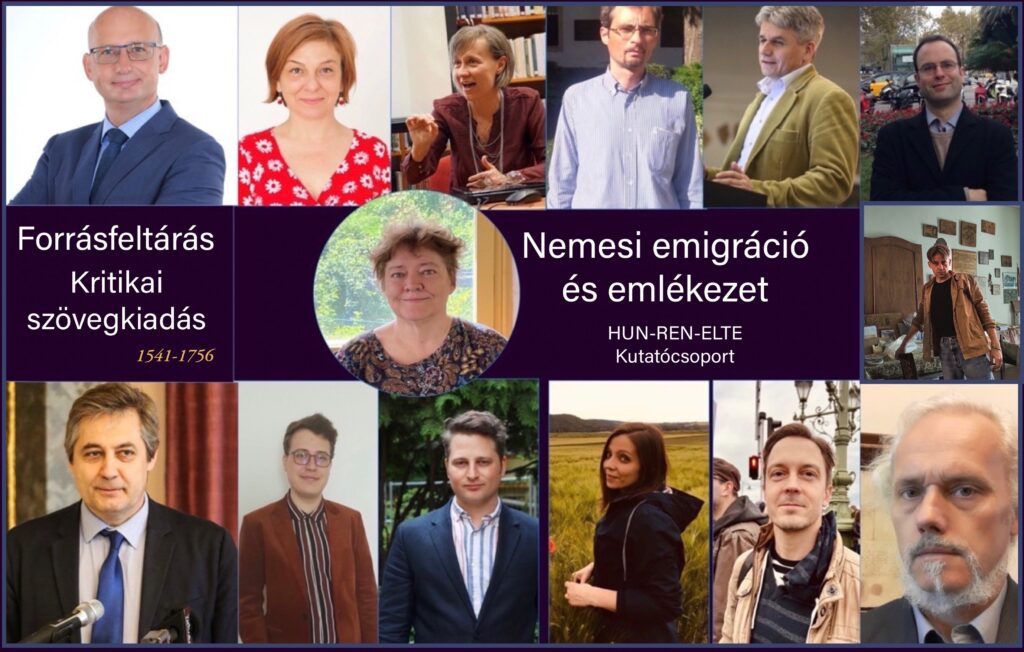Research leader name
Ildikó Horn

In recent years, the upsurge in migration studies has led to a renewed interest in approaching historical migrations from new perspectives. The question of the migration of the early modern elite is a particularly topical issue in international historical research. Our project, building on a significant research history, has joined this trend by examining the migration of the early modern Hungarian nobility.
Letöltések
In this project, we reconstruct and analyze the processes of noble migration and emigration that affected the Kingdom of Hungary and the Principality of Transylvania. Based on basic source research and material collected in national and international archives, the research will examine the process and trends of Hungarian noble emigration, the specific modes of migration, and the political, social, and material causes and consequences. We will also deal with the phenomenon of mass migration, which was basically triggered by the Ottoman conquest. We will also examine the specific causes of migration, the different flight routes, the material background and other characteristics of the new living situation and the adaptation to it. We will also examine the process and effectiveness of building new relationships in emigration. Another fascinating topic is whether there is a way back from emigration and, if so, how reintegration is achieved. An important goal is to publish the most valuable elements of the documentary material produced during the emigrations that can be further used by other researchers, such as correspondence, memoirs, and other self-reflexive writings.

The other central focus of the project is a complex study of the Rákóczi emigration from a new perspective, focusing on the politically active period of emigration after the Rákóczi War of Independence. Within the framework of the research project, two important sources of memory will be critically published. The finalization of Ferenc Rákóczi II’s Confessio Peccatoris will be preceded by an international source study, drawing on archives and libraries in France, Austria, the Netherlands, Spain, Sweden, Belgium and the United Kingdom, which have been little or not at all researched. The goal is to produce a new edition of the text based on the original manuscript, with a critical apparatus that includes corrections and indicates insertions, and a similia apparatus that includes parallel textual places and textual sources (e.g., biblical). The narrative passages will be juxtaposed with other historical sources and narratives, and explanatory and interpretive historical notes will be used to make the text of the work more readable. In addition, a critical edition of the diaries and correspondence of Ádám Király Szathmári with a modern commentary will be published.
The expected outcome of our research will be, in addition to the two source publications mentioned above, four or five monographs, several volumes of studies in English, and several articles in English. In addition, as a corollary of the research, we will create an online prosopographical database that will be an essential working tool for all scholars of the early modern period, regardless of their discipline. In addition to professional dissemination, we also plan to conduct extensive outreach work in the form of a podcast mini-series, web applications, and public lectures.



